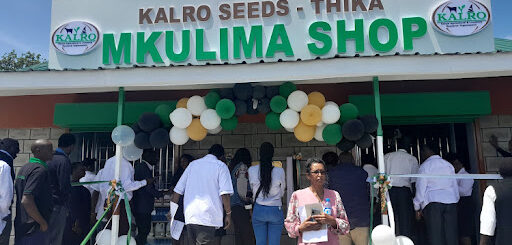Unlocking the Secrets of Bee-keeping (Apiculture) Success
Bee-keeping is not just about honey; it is a special kind of farming that helps people and nature. In Africa, where there are many different plants and animals, Bee-keeping can be an excellent way for communities to grow and protect the environment. With its different weather and landscapes, East Africa is a perfect place for this. Now, why is Bee-keeping a big deal in Kenya?
Kenya has a lot of different places with different weather, making it just right for many kinds of bees. This is not just good for the bees but also for people. Bees make honey and other valuable outputs, including propolis, royal jelly, pollen, and wax. However, it is not just about what we get from bees. Bee-keeping helps families make money and helps the environment, too. It is a win-win!
Why Bee-keeping is one of the Best Investment to venture in
Bee-keeping goes beyond harvesting honey; it is a vital environmental investment. As exceptional pollinators, bees play a crucial role in growing fruits, vegetables, and other crops. By engaging in Bee-keeping, you become a steward of nature, actively contributing to increased pollination and, consequently, enhanced agricultural productivity. The positive ripple effect on local ecosystems and global food production is immeasurable, making Bee-keeping a genuinely impactful and environmentally conscious investment.
Why African entrepreneurs should be interested in the bee-keeping business
Africa’s diverse ecosystems provide a rich tapestry for Bee-keeping, making it an enticing venture for entrepreneurs. Here is a detailed exploration of why African entrepreneurs should consider investing in Bee-keeping:
Rich Biodiversity
The continent’s abundant plant species create a diverse palette of nectar sources for bees. This diversity translates into a spectrum of honey flavours, each unique to the region. African beekeepers can leverage this biodiversity to offer distinct, high-quality honey varieties, catering to a market that appreciates and values the richness of nature’s bounty.
Global Demand
The global demand for natural and organic products continues to soar. With its authenticity and unique flavours, African honey holds immense appeal in international markets. Entrepreneurs can capitalize on this demand, positioning African honey as a premium, sought-after product. Exporting honey boosts local economies and contributes to Africa’s positive presence in the global market.
Climate Resilience
Africa’s varied climates present a unique advantage for Bee-keeping. Bees are adaptable creatures, capable of thriving in different weather conditions. This resilience makes bee-keeping a viable and consistent enterprise unaffected by seasonal changes. Entrepreneurs can build resilient bee-keeping operations that endure and flourish, providing a stable source of income regardless of weather fluctuations.
Products Obtained from Bees and Their Contribution to Financial Gains
Bee-keeping is a treasure trove of valuable products extending far beyond honey’s sweet taste. The following are some of the products obtained from the keeping of bees.
Honey
Honey is the golden elixir of Bee-keeping, cherished for its natural sweetness and versatility. Beyond its culinary uses, honey boasts diverse health benefits, making it a sought-after commodity. By producing and selling honey, beekeepers create a steady income stream, tapping into a market that values taste and well-being.
Propolis
Propolis, often called “bee glue,” is a resinous substance bees collect from plants. Renowned for its medicinal properties, propolis has antibacterial and antioxidant qualities. As interest in natural health products grows, so does the demand for propolis-based items, ranging from ointments to supplements. Harvesting and processing propolis can open new revenue streams for beekeepers.
Royal Jelly
Royal jelly is a nutrient-rich secretion produced by worker bees and fed to the queen bee. Recognized for its potential health benefits, including enhanced skin vitality and immune system support, royal jelly has found a niche in the beauty and wellness industry. By incorporating royal jelly into product lines, beekeepers can cater to a market seeking natural, holistic solutions.
Pollen
Bee pollen, collected from flowers, is a powerhouse of nutrients. Packed with proteins, vitamins, and minerals, bee pollen has gained popularity as a superfood. Entrepreneurs can capitalize on the nutritional trend by offering bee pollen as a standalone product or as an ingredient in health foods and supplements, creating a lucrative market presence.
Wax
Beeswax, a versatile substance bees produce, finds applications in various industries. From crafting candles to creating cosmetics, beeswax has aesthetic and practical uses. Entrepreneurs can harness the demand for natural and sustainable products, contributing to industries that value the unique qualities of beeswax.
Each of these bee-derived products holds its market niche, contributing not only to the financial gains of beekeepers but also fostering a diversified and resilient bee-keeping enterprise. By exploring and understanding the potential of these products, entrepreneurs can unlock new avenues for income generation within the realm of Bee-keeping.
Apiary Management and Types of Hives
Managing an apiary involves understanding the needs of bee colonies and selecting appropriate hive types. Selecting an optimal location for your apiary is crucial for bee-keeping success. Consider factors such as the availability of diverse flora, proximity to water sources, and accessibility for hive management.
Hive Types and Construction
Langstroth Hives

Advantages
- Easy management with removable frames.
- Large capacity for honey production.
- Standardized design for widespread use.
Disadvantages
- Heavy and may require specialized equipment.
- Initial setup costs can be higher.
- Efficient honey extraction with minimal disturbance to bees.
Kenyan Top Bar Hives

Advantages
- Adapted to the African climate.
- Low-cost construction.
- Suitable for small-scale Bee-keeping.
Disadvantages
- Limited honey production compared to larger hives.
- Challenging for commercial-scale operations.
- Localized honey production, well-suited for community bee-keeping.
Warre Hives

Advantages
- Emphasizes natural bee behaviour.
- Minimal intervention is required.
- Vertical design for colony expansion.
Disadvantages
- Limited honey production compared to Langstroth hives.
- Specialized management techniques.
- Honey production with a focus on sustainable, hands-off Bee-keeping.
Hive Management Practices
- Regular colony inspections are crucial for monitoring bee health.
- Implement pest control measures to protect against common hive threats.
- Disease prevention through proper sanitation and hygiene practices.
- Seasonal considerations for hive maintenance based on climate changes.
Income from Bees
Diversifying income sources is crucial for a thriving bee-keeping venture. Beekeepers can tap into various income streams by strategically managing their hives and products.
Advantages, and considerations for each income avenue
Honey Sales
Harvest honey by removing frames from hives extracting and packaging it for sale. Honey can be sold directly to consumers, local markets, or online platforms. Branding and marketing efforts can create a niche for premium or speciality honey products, consequently fetching more income.
Value-Added Products
Utilize bee-derived products to create value-added items such as beeswax candles, honey-infused skincare, and propolis tinctures. It is of essence to diversify product offerings to reach different consumer markets. Farmers can leverage the growing demand for natural and sustainable products.
Bee-keeping Equipment and Services
Sell bee-keeping equipment such as hives, frames, and protective gear. Additionally, farmers can offer bee-keeping services, including hive management consultations and educational workshops. One can tap into the needs of aspiring beekeepers by providing expertise and guidance for individuals or groups interested in starting their bee-keeping ventures.
Royal Jelly and Propolis Products
Harvest royal jelly and propolis for use in cosmetic and health products. Create a market presence in the beauty and wellness industry. Address the demand for natural and organic ingredients in skincare and dietary supplements.
The bee-keeping industry in Kenya has grown significantly over time. Being a lucrative business, farmers and individuals with land that is not in active use can get into the business by setting up apiaries for commercial use.
Feel free to connect with us for in-depth discussions, personalized advice, or further inquiries on sustainable bee-keeping (Apiculture) practices.



